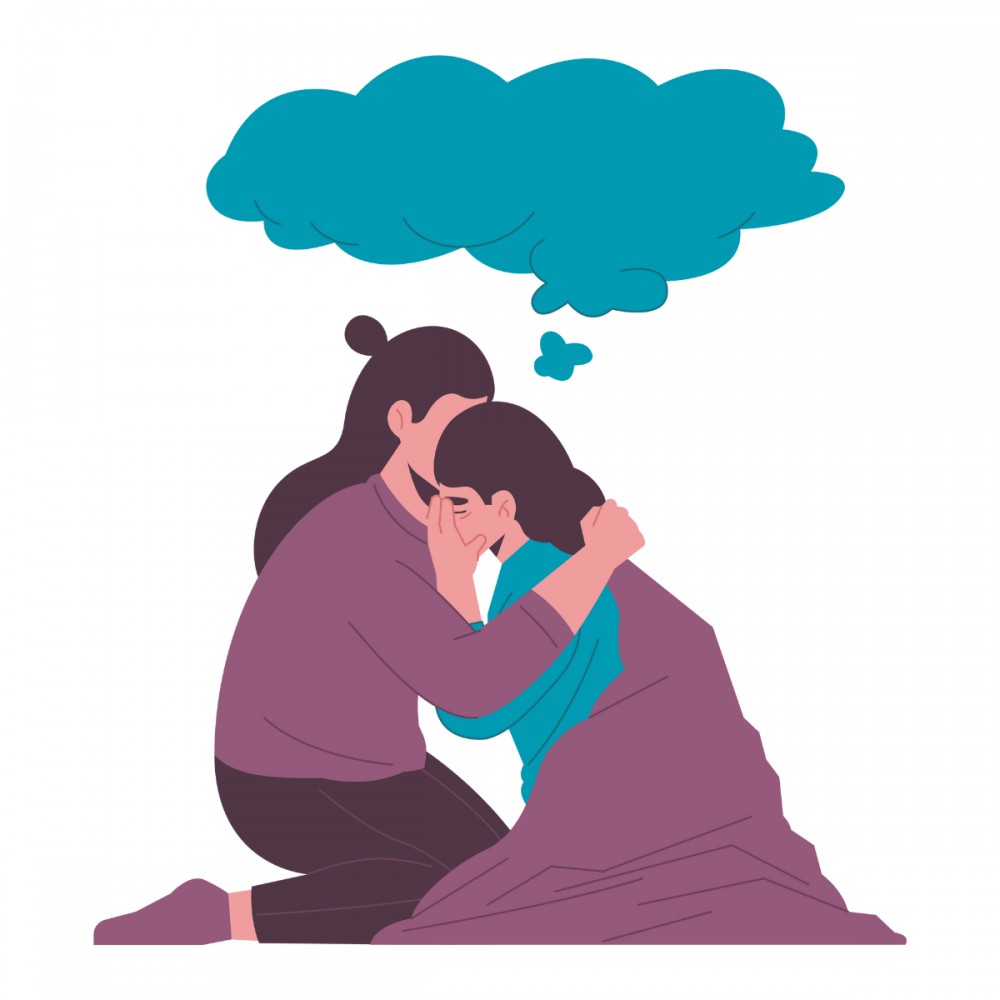Asking about suicidal thoughts or feelings
A person who is thinking about suicide may not ask for help, but that doesn’t mean that help isn’t wanted. They may not have the words to clearly describe how they are feeling, or they could feel ashamed, like they don't deserve help or that no-one can help them. Alternatively, they may be wanting to protect others and not cause them distress.
It can be hard to ask if someone is having suicidal thoughts. Use the prompts below to start a conversation and see our resource ‘Are you worried someone is thinking of suicide?’ for more information.
Be direct. Ask the person about their thoughts of suicide, and if they have a plan or any items organised to aid their plan (see information panel below). Try asking:
“Do you ever think about suicide?”
“Have you thought about ending your life?”
Remember, talking about suicide won't make someone act on their thoughts. It may save their life!
If they answer ‘yes’, ask if they’ve thought about how. Take necessary safety steps (e.g. removing any means), and stay with them.
Acknowledge what they’ve shared with you. Anchor the conversation, offer support and reinforce hope. You could say:
- “I’m sorry you’re going through this. Let’s work through it together”
- “It must feel tough at the moment. How can I help?”
- “Suicide is a permanent solution to a temporary problem. Let’s see what we can do to help you.”
If the person reveals information or plans that could put themselves, or someone else at risk of harm.
If the person reveals information or plans such as a suicide method or location, take them seriously. Seek help for them right away. Support the person to get help and stay with them (or make sure someone else is with them) until they get that help. Visit here for In Crisis support.
Never promise to keep someone's thoughts about suicide a secret.
Be honest about needing to get them extra support. Say:
- “I really want to get more help for you, so I need to share with others who can help us.”
- “It takes a lot of courage to share what you did. I want to support you to feel better.”
Checking in with someone
If you take a general interest in how the person is doing and what’s important to them (without a specific agenda of ‘helping’ them) they will often be more likely to share their thoughts and feelings with you.
To check-in on how someone’s doing, try starting the conversation with:
- “It’s okay to talk with me about anything, and I mean that.”
- “I know there’s a lot going on for you right now…”
- “Let's take time out, make a cuppa and have a chat.”
- “Do you want to go for a walk and talk?”
- “What can I do to help you feel supported?”
- “Do you have a health professional or service I can help you to contact?”
- “Do you want me to make an appointment for you to talk with someone?”
- “I am here for you, and we can find people who can help you.”
If the person’s behaviour changes or you have a feeling that 'something’s not right', check in with the person and ask what's going on for them. They may need more support – see our Helplines page for more information. See our Safety Plan page for more tips on how to support someone.



